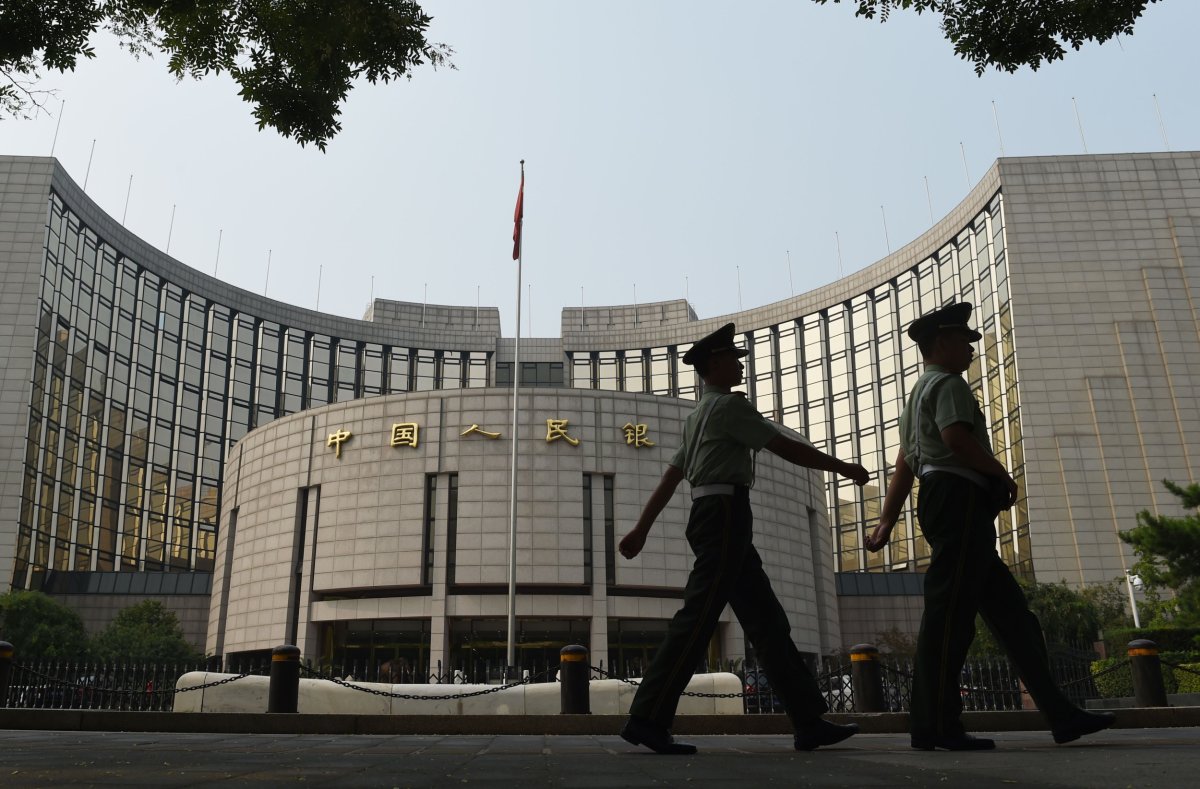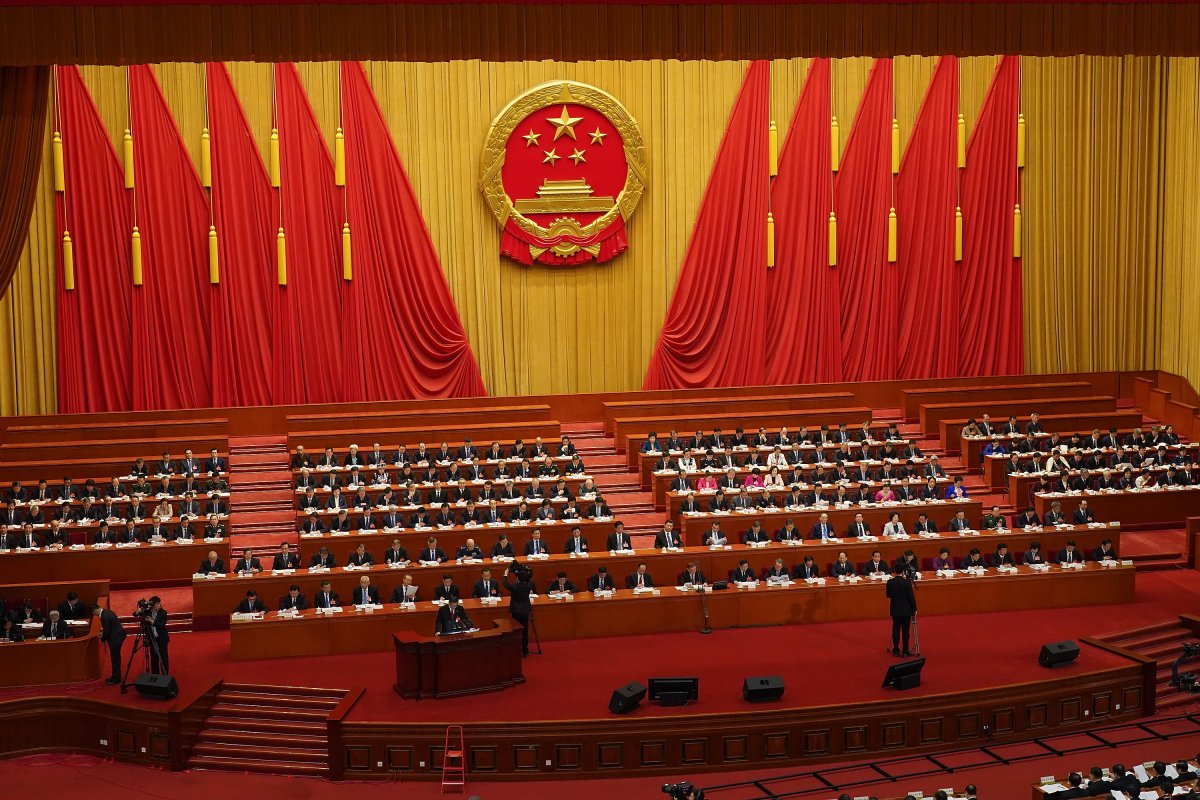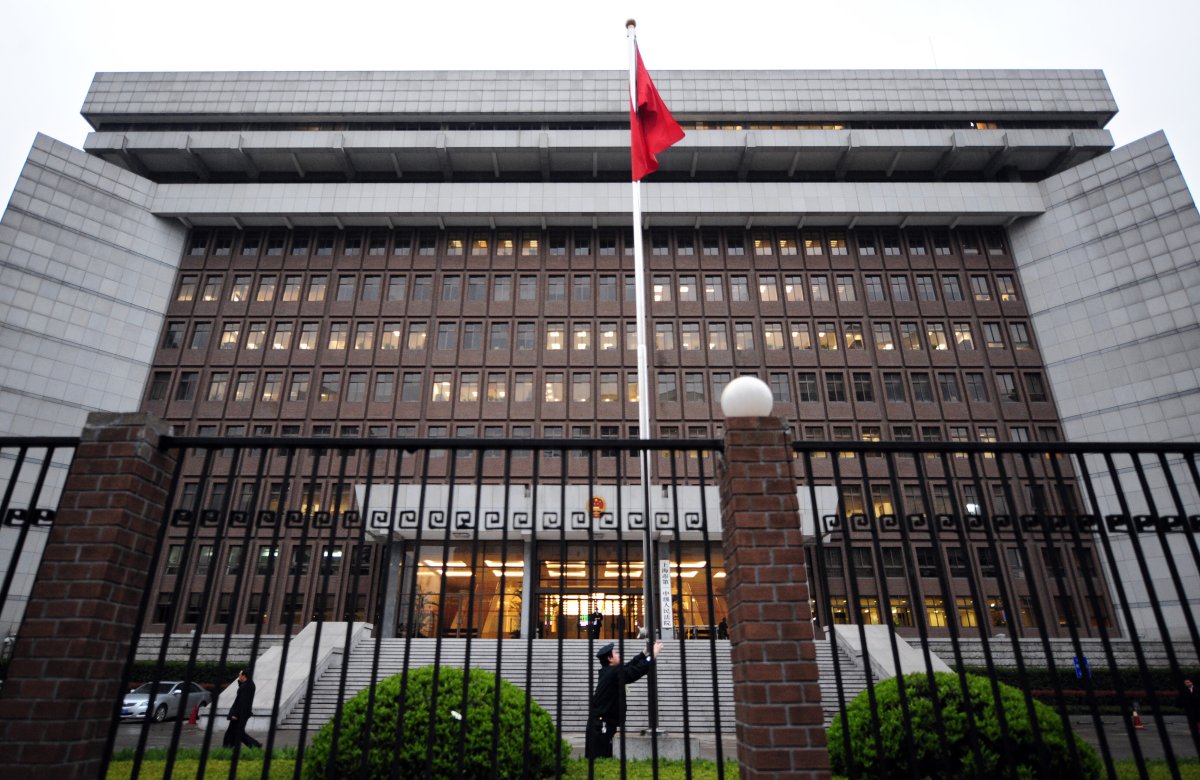In mid-November, China's top government agencies published a draft law to establish the country's social credit system, envisioned as a giant, fully integrated mechanism to assess every legal entity in the country.
Beijing's vision revolves around "creditworthiness," a concept extended from the financial sector to measure reliability. A centralized database could, in theory, give relevant parties access to a rolling review of an individual or company's trustworthiness in the form of a social credit score.
The rules would extend to the civil service and judiciary, too, with a view to increasing fairness and reducing corruption across departments. To encourage more self-discipline in the public and self-regulation in business, a system of reward and punishment could help the government fill a trust deficit in society.

Hundreds of millions of unbanked Chinese could have their credit measured by staying out of trouble or paying their bills on time, and corporations could enjoy preferential treatment from market watchdogs if they adhere to employment and environmental standards.
Those who lose credibility would find it hard to move up in life, Li Keqiang, China's outgoing premier, said in 2018. But what is often misrepresented in the West as 1984 and Black Mirror rolled into one is only Beijing's latest attempt at finding a one-size-fits-all solution to domestic governance.
How Long Has China Had a Social Credit System?
Discussions about how best to institutionalize law-abiding citizens and enterprises have been ongoing for decades, particularly as a way to manage China's fast-changing social makeup after the economic boom that began in the 1970s and 1980s.

On an individual level, the government seeks to instill in the public an increased sense of morality to discourage everything from fraud and plagiarism to counterfeit goods and petty crime. But a system to make individual actions more transparent would necessitate the creation of tools to monitor all aspects of life. Social control, if not the original aim, could be an inevitable consequence, researchers say.
When it comes to business, China wants to target commercial wrongdoing and the exploitation of loopholes that have led to industrial disasters and food scandals. It wants companies to pay their taxes, submit accurate production and environmental data, and not contravene safety and labor laws.
In 2011, Wen Jiabao, China's former premier, discussed these issues as requiring an official response to address public dissatisfaction about individual or corporate unruliness. The solution was simple on paper: the social credit system would reward honesty and punish dishonesty.
China's leaders officially endorsed a six-year planning outline in 2014, green-lighting the launch of national pilot projects with the help of private credit rating companies.
The country's rapid economic rise meant that the government had already intervened in areas such as market supervision, creating legislation to ensure businesses weren't gaming the system.
Beijing's end goal is to establish a master database, a blacklisting system, and a reward and punishment instrument that can be applied nationwide, with the aim of measuring trust in society, government, the judiciary, finance and commerce.

Is China's Social Credit System Nationwide?
China has yet to deliver on an all-seeing system that rates behavior outside of existing laws, especially for individuals. But social credit systems have been trialed or planned in an estimated 80 percent of Chinese regions and cities since the early 2010s, generally to mixed results.
Primary sources fed into these systems include familiar datapoints such as financial records and dealings with lenders. Beyond that, however, local governments have been given the freedom to experiment, devising their own prizes and penalties.
Remaining debt-free and volunteering for community service were two ways of boosting one's social credit score in some localities. Benefits of maintaining a positive profile included priority health care and deposit-free rental of public housing.
On the opposite end of the spectrum, sanctions for low creditworthiness included a ban on applying for public sector jobs and difficulty accessing home mortgage loans. Some pilots restricted government officials to economy-class seats on flights and trains, or prohibited them from buying property.
Western commentary has sometimes mistaken regional tests for nationwide plans. In China's coastal cities of Hangzhou and Shanghai, minor offenses like eating on public transport or failing to sort one's recycling could negatively affect one's creditworthiness.
Some of the most controversial trials included one in Rongcheng, a city of 710,000 people. Officials there assigned each resident 1,000 social credit points, which would increase or decease depending on behavior—jaywalking or littering, for instance.
A similar points system was introduced in Suining, a city of 2.8 million, which penalized individuals for inappropriate comments online. But many of the initiatives were scrapped after a public backlash, and cities made participation voluntary.
"The personal scoring initiatives that live on today serve only as positive incentives. Lacking teeth, they are essentially loyalty rewards programs like those operated by airlines," Vincent Brussee, a researcher at the Mercator Institute for China Studies, a German think tank, wrote in an analysis this past February.

China's corporate social credit system, on the other hand, is more developed, as is its sanctions mechanism, the EU Chamber of Commerce in China observed in a 2019 report. The system extends to foreign enterprises as well, and their reputation can be harmed by labor disputes and loan defaults.
Low credibility triggered by specific offenses could lead to blacklisting, which limits a business's ability to secure corporate loans and cuts it off from benefits such as state subsidies and tax exemptions. Enterprises could also expect more frequent inspections and delayed approval on permits.
Sustained good behavior can return a business's whitelist status, but there are no remedial measures for those that commit serious violations. Here, too, a unified platform to track the performance of corporations has yet to be created.
Is China's Social Credit System Mandatory?
While individuals and companies are unlikely to be given the choice to opt out of a future nationwide system, participation in most cases isn't mandatory today. Policies vary from city to city in terms of how creditworthiness is tallied, and data isn't consistently shared across provincial borders or government departments.
China's central bank estimated that just over 1 billion individuals—around 70 percent of the population—were covered by the social credit system by the end of 2019. By July of that year, 2.5 million people across the country had been barred from flights, 90,000 people had been restricted from high-speed rail services, and 300,000 people had been deemed untrustworthy by Chinese courts, according to the National Development and Reform Commission.
Separately, 4.3 million people were persuaded to restore their creditworthiness by fulfilling court-mandated orders such as paying fines or other forms of financial compensation, said the commission.
The numbers suggest widespread oversight, but just how comprehensively each individual is monitored under the system remains unclear.
"Creditworthiness is the vaguest piece of the social credit puzzle, and essentially amounts to a propaganda and morality campaign to instill concepts of honesty and trustworthiness in all areas of governance, business, and public life," wrote Jeremy Daum, a senior fellow at Yale Law School's Paul Tsai China Center, after November's draft law was released.
"It has typically proceeded through education and publicity campaigns, rather than any type of enforcement mechanism–unlike the more technical areas of credit regulation and financial credit reporting—as legal authority has consistently required that punishments are only appropriate for violations of law," said Daum, who has written extensively on the social credit system on the website China Law Translate.
Is China's Social Credit System Ethical?
While China's vision of the system has yet to emerge as a dystopian tool for control driven by big data, there are real concerns about the way personal information is to be collected and processed to create social credit profiles, which could have lasting implications for individuals.
In 2019, for instance, the People's Bank of China assured the general public that it hadn't collected any data about the payment of water and electricity utility bills, and that such data would only be collected on individual approval. But the announcement did suggest to many that such a measurement could conceivably be built into their social credit score in the future.
A big question remains over who Beijing would commission to construct its integrated nationwide system, while China's central authorities are still unsure what the finished product will look like.
Private companies have provided the technical infrastructure needed to run the numerous pilot projects across the country, but potential conflicts of interest mean the government may not trust any one firm to build the sensitive mechanism, which could take decades to emerge.

Another issue is the government's decision to restrict social credit penalties to existing laws, which experts say only serves to highlight shortcomings in China's penal code.
The ill-defined category of "picking quarrels and provoking trouble," for example, is often used to round up hooligans, human rights lawyers and political dissidents alike. Here, the long-term implications of China's social credit system may act as an incentive not to oppose the state.
Finally, researchers warn that an exaggerated focus on what China's social credit system could one day become distracts from the government's existing—and covert—tools of social control, to include strict online censorship.
In regions like Xinjiang, China hasn't needed a social credit system to deploy security tools like troves of biometric data and a large network of surveillance cameras to track the movements, habits and associations of its local population of Uyghurs and other mainly Muslim minority groups, for what Beijing has described as a years-long counterterrorism campaign.
***
Do you have a tip on a world news story that Newsweek should be covering? Do you have a question about China's social credit system? Let us know via worldnews@newsweek.com.
Uncommon Knowledge
Newsweek is committed to challenging conventional wisdom and finding connections in the search for common ground.
Newsweek is committed to challenging conventional wisdom and finding connections in the search for common ground.
About the writer
John Feng is Newsweek's contributing editor for Asia based in Taichung, Taiwan. His focus is on East Asian politics. He ... Read more
To read how Newsweek uses AI as a newsroom tool, Click here.








